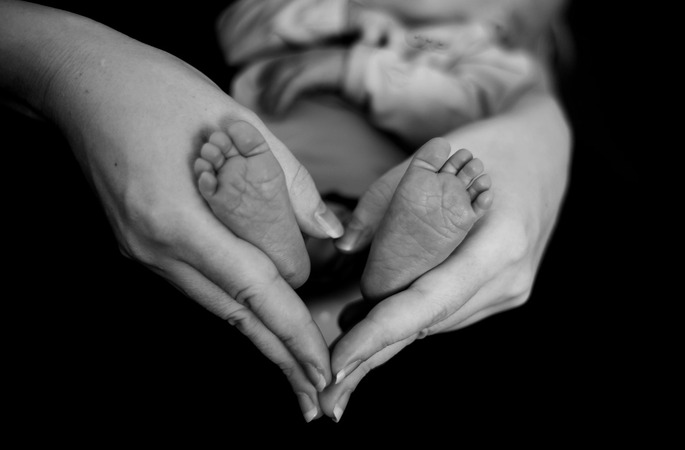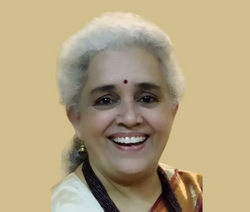Is it a personal choice or a public policy failure?
Celebrities maintain a social media presence across multiple platforms, like Twitter, Instagram, Facebook, and YouTube in this digital age. They present public-private selves by sharing both sad and happy moments with their followers and curating their online and offline personas. By performing their identities, choices and politics online in this manner, celebrities contribute to a cultural production of individuality and reification of ‘personal choices’, devoid of the broader context and history. An interesting case is that of Ms Bharti Singh, a well-known Hindi comedian and TV anchor, and her ‘choice’ to return to work only 12 days after giving birth.
Bharti and her husband, a writer and an anchor, Mr Haarsh Limbachiyaa, are active on social media. On their YouTube channel, Life of Limbachiyaa’s [1] (1.24 million followers), they post vlogs regularly and give a sneak peek into their lives. These vlogs have chronicled the announcement of Bharti’s pregnancy, pregnancy cravings, pregnancy photoshoots, checking into the hospital, the announcement of the arrival of their boy baby, returning from the hospital, seeking a name for the child from followers, and returning to shooting.
When the news broke about Bharti returning to the film set 12 days after giving birth to her son, there were a lot of reactions online. On the one hand, netizens applauded and appreciated her for being a ‘super lady’ and ‘hard-working woman’. Some people left comments below her social media posts and vlogs that she sets goals for pregnant women by working till she goes into labour and returning to work 12 days after childbirth. On the other hand, some people opined that one should not judge a woman, and it is a woman’s choice whether to stay or return to work soon after birth. Others trolled her for leaving her son behind, getting back to work, and running after money instead of resting after delivery. They guilted her to explain whether her child is being taken care of and whether he drinks breast milk. In turn, she hinted at expressing her breast milk and ensuring that the baby is not formulae fed.[2]. In her interviews, she also mentioned that she could not afford to be at home; she is not a queen and has to earn her living. In one of the interviews, she said, “I have seen women work throughout their pregnancy. I am from Amritsar. Women who work as labourers at construction sites carry their huge baby bumps and tons of heavy construction materials such as bricks, cement, and rods throughout their pregnancy. Why should I sit at home just because I can afford to?”…. A lot of women resume work immediately after their delivery, and I am not an exception. Our mothers and grandmothers would work and do household chores till the last day of their pregnancy. It is a memorable event of a woman’s life, and in this period, every woman should be free to do whatever keeps her mind and body happy.”[3]
These choices that Bharti Singh made and the accolades and brickbats that she is receiving do not help us get to the core issue.
It is not about whether it is women’s responsibility to stay home for the baby, whether it is her choice to get back to work, or whether women returning to work immediately after birth are the only ones who are committed to their jobs.
Instead, the questions that require centring are: What medical reasons women are expected to take post-delivery care of themselves and their babies? What is the policy on maternity benefits? What kind of health complications arise after childbirth? And what is the broader signal to society when women do not set aside time for their bodily processes to recover and spring back into paid work in the public domain?
To answer these questions: medical research and understanding of physiological changes and psychological requirements reiterate that women require 6 to 8 weeks for their bodies to recover, to return to the pre-pregnancy state. For some, this might be longer. Due to the drop in hormones after childbirth, it is estimated that 22% of women face postpartum depression or ‘maternity blues’[4]. Celebrities have widely acknowledged these experiences[5]. The World Health Organisation has recommendations for mother and child post-natal care that specifically recognise postpartum depression, nutritional requirements, rest and support to mothers.[6] Research shows that breastfeeding, in addition to being a critical source of nutrition to the infant, has significant and far-reaching effects on cognition and behaviour in children; and physical recovery and mental health among mothers.[7]
In India, the Maternity Benefits Act (1961, amended in 2017) allows for 26 weeks of maternity leave for women working in establishments with more than 10 employees. Public sector companies fulfil this entitlement but women in many of the private sector companies, SME (Small and medium enterprises) sector and the unorganised sector (the one that Bharti Singh alludes to), are governed by the Employees State Insurance Act, 1948, and do not enjoy maternity benefits due to defaults in implementation. It is evident from Bharti’s case that the television industry that has contractual arrangements with the artists is not covering maternity leave, a violation worth highlighting.
Bharti’s justification for returning to work with a short break, and the ensuing debates on social media, can reverse in the minds of people and employers, women’s hard-earned reproductive rights. There is a danger in thinking that pregnancy and childbirth are matters of individual choice, and hence have to be handled by women individually. Her pronouncements about poor women carrying out back-breaking work during pregnancy have to be understood as a lack of or inadequate social protection policies in our country that need to change and not a matter for us to laud and romanticise.
Women spend time recovering from childbirth; breastfeeding and caring for their newborn infants are vital for the health and well-being of both. Enabling this is the responsibility of the state, society and the industry.
Lakshmi Lingam, is a Professor and Dean, School of Media and Cultural Studies, TISS, Mumbai.
[1] https://www.youtube.com/channel/UCiKNX0TIMyKgGqQznhR1Xig/about
[2] https://www.youtube.com/watch?v=Y29MOiUF-Lc
[3] https://timesofindia.indiatimes.com/tv/news/hindi/exclusive-i-had-no-intention-of-setting-any-record-by-reporting-to-work-immediately-after-my-delivery-says-bharti-singh/articleshow/91031015.cms
[4] https://www.ncbi.nlm.nih.gov/pmc/articles/PMC5689195/
[5] https://timesofindia.indiatimes.com/life-style/parenting/moments/postpartum-depression-6-indian-celebrities-who-opened-up-their-postnatal-struggles/photostory/77721965.cms
[6] The WHO guidelines, pregnancy, childbirth, postpartum and newborn care: A guide for essential practise, that define this standard of care can be found at http://www.who.int/maternal_child_adolescent/documents/924159084x/en/.
[7] https://www.ncbi.nlm.nih.gov/pmc/articles/PMC6096620/#CR3




leave a comment